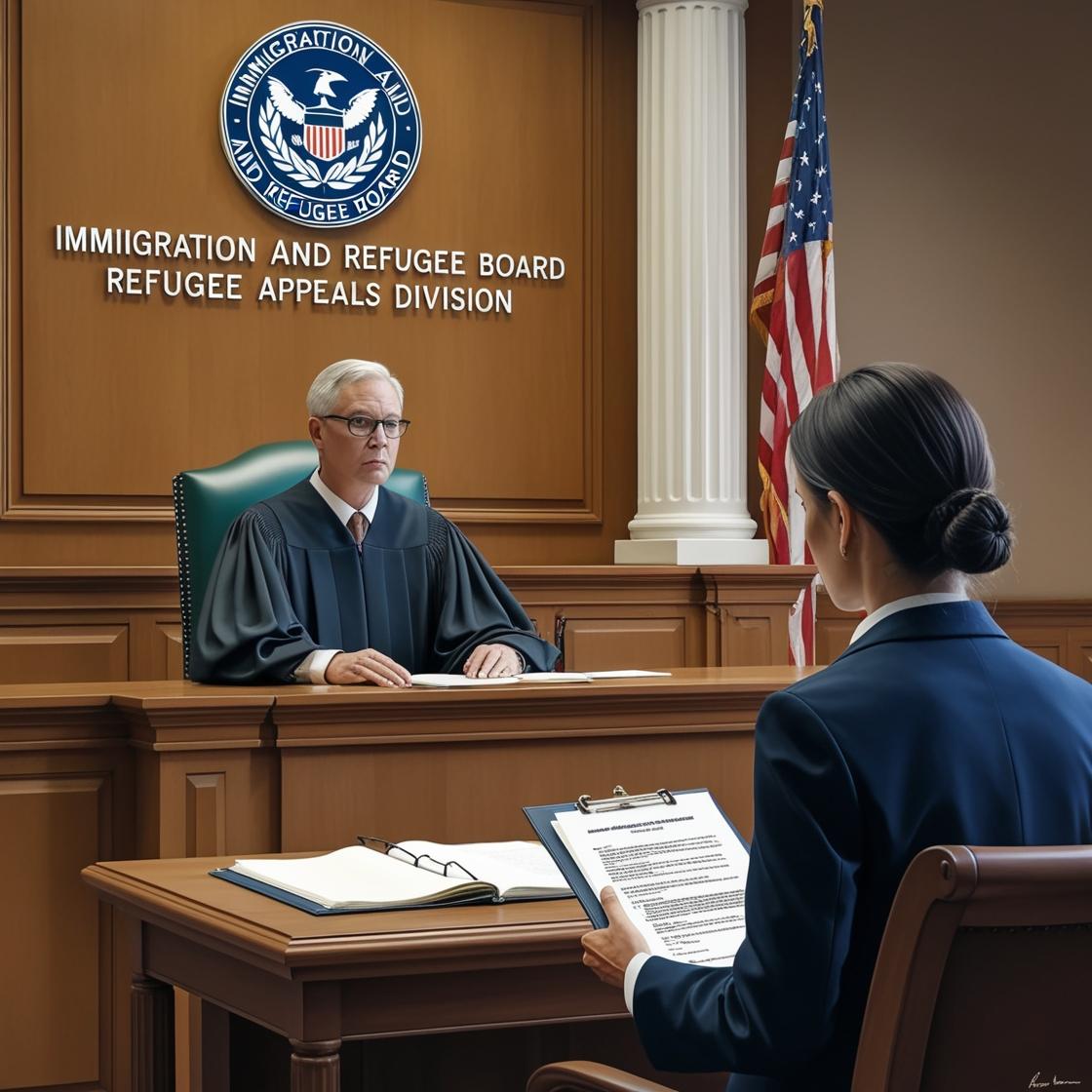If your refugee claim in Canada has been refused, it doesn’t necessarily mean the end of your protection journey. Many refused claimants have the right to appeal their decision to the Refugee Appeal Division (RAD) of the Immigration and Refugee Board of Canada (IRB). This article explains who is eligible for a refugee appeal, how to file one, and what to expect during the process.

🔍 What is a Refugee Appeal?
A refugee appeal is a legal process that allows a refused refugee claimant to challenge the negative decision made by the Refugee Protection Division (RPD). The appeal is heard by the Refugee Appeal Division (RAD), which can:
- Overturn the decision and grant refugee protection,
- Order a new hearing at the RPD,
- Or confirm the original refusal.
This is a crucial opportunity to correct errors made in law, fact, or process.
📚 Learn more from the IRB:
🔗 Refugee Appeal Division – IRB
⚖️ Legal Framework: IRPA Section 110
The legal basis for the refugee appeal process is found in Section 110 of the Immigration and Refugee Protection Act (IRPA):
“A person whose claim is rejected by the Refugee Protection Division may appeal to the Refugee Appeal Division on a question of law, of fact, or of mixed law and fact.”
🔗 Read IRPA Section 110 – Justice Canada
✅ Who Can File a Refugee Appeal?
Most refugee claimants whose claims were rejected by the RPD are eligible to file an appeal with the RAD. However, some exceptions apply.
You CAN file an appeal if:
- Your refugee claim was rejected by the RPD.
- You are not subject to a removal order due to criminality or security grounds.
- You did not withdraw or abandon your claim.
- You are not a Designated Foreign National (DFN).
🔗 What is a Designated Foreign National – IRCC
❌ You CANNOT appeal if:
- You were found inadmissible on serious grounds (criminality, security, human rights violations).
- You were found to have made a claim at a land border under the Safe Third Country Agreement.
- You are a Designated Foreign National under IRPA sections 20.1 to 20.4.
- You withdrew or abandoned your refugee claim voluntarily.
📆 Timeline to File an Appeal
Time is critical. You must:
- File your Notice of Appeal within 15 days of receiving the written reasons for refusal.
- Submit your full appeal record within 30 days of receiving the reasons.
Late submissions can result in automatic dismissal, unless exceptional circumstances are proven.
📝 Download: RAD Notice of Appeal Form (PDF)
📂 What You Need to File a Refugee Appeal
To properly submit your appeal, you will need to compile and submit a complete appeal record, including:
- Notice of Appeal
- Written reasons for refusal from the RPD
- Appellant’s record (legal arguments, documentary evidence, and affidavits)
- Any new evidence that was not available during the original hearing
🔗 RAD Appeal Process Explained – IRB
🧾 What Happens After You File?
The Refugee Appeal Division will review:
- Your refugee claim decision
- Your appeal documents and legal arguments
- Any new or additional evidence you submitted
In most cases, RAD decisions are made based on written submissions only, without an oral hearing. However, a hearing may be held if:
- New evidence needs testing or clarification
- Credibility is in question
- It is necessary in the interest of justice
⚖️ Possible Outcomes of a Refugee Appeal
- Decision Overturned
If the RAD finds the original decision was incorrect, they may grant you protected person status. - New Hearing Ordered
If the decision was procedurally flawed, the RAD may order a re-hearing at the RPD. - Appeal Dismissed
If the RAD agrees with the original decision, your appeal will be dismissed, and you may be subject to removal proceedings.
In that case, you may still apply for:
- Judicial Review at the Federal Court
- Pre-Removal Risk Assessment (PRRA)
- Humanitarian and Compassionate (H&C) application
Learn more about post-appeal options:
🔗 Canada Refugee Protection Options – IRCC
🌍 Global Human Rights Context
Canada’s refugee appeal system is informed by international human rights obligations under:
- The 1951 UN Refugee Convention
- The Convention Against Torture
- The Universal Declaration of Human Rights
📖 UNHCR – Canada Refugee Overview
📚 Amnesty International – Refugee Appeals & Human Rights
📣 How Legal Representation Can Help
Refugee appeals involve complex legal reasoning, tight deadlines, and strong documentation. Having professional legal representation—by a licensed immigration consultant (RCIC-IRB) or immigration lawyer—can significantly improve your chances of success.
At Fourth Dimension Immigration, we assist with:
- Preparing and submitting your RAD appeal
- Legal arguments and case law support
- Gathering new evidence
- Federal Court judicial reviews (if needed)
📧 Email: info@4dimmigration.com
📍 Location: Mississauga | Serving clients across Canada
📞 Phone: +1 (647) 909-7777
📌 Final Takeaway: Every Refugee Has the Right to Appeal
Being denied refugee protection is devastating—but it is not the end of the road. If you believe an error was made in the assessment of your claim, Canada’s appeal process offers a second chance at justice and protection.
File your appeal on time, present your strongest evidence, and seek help if needed.
Your safety, dignity, and future are worth fighting for.








